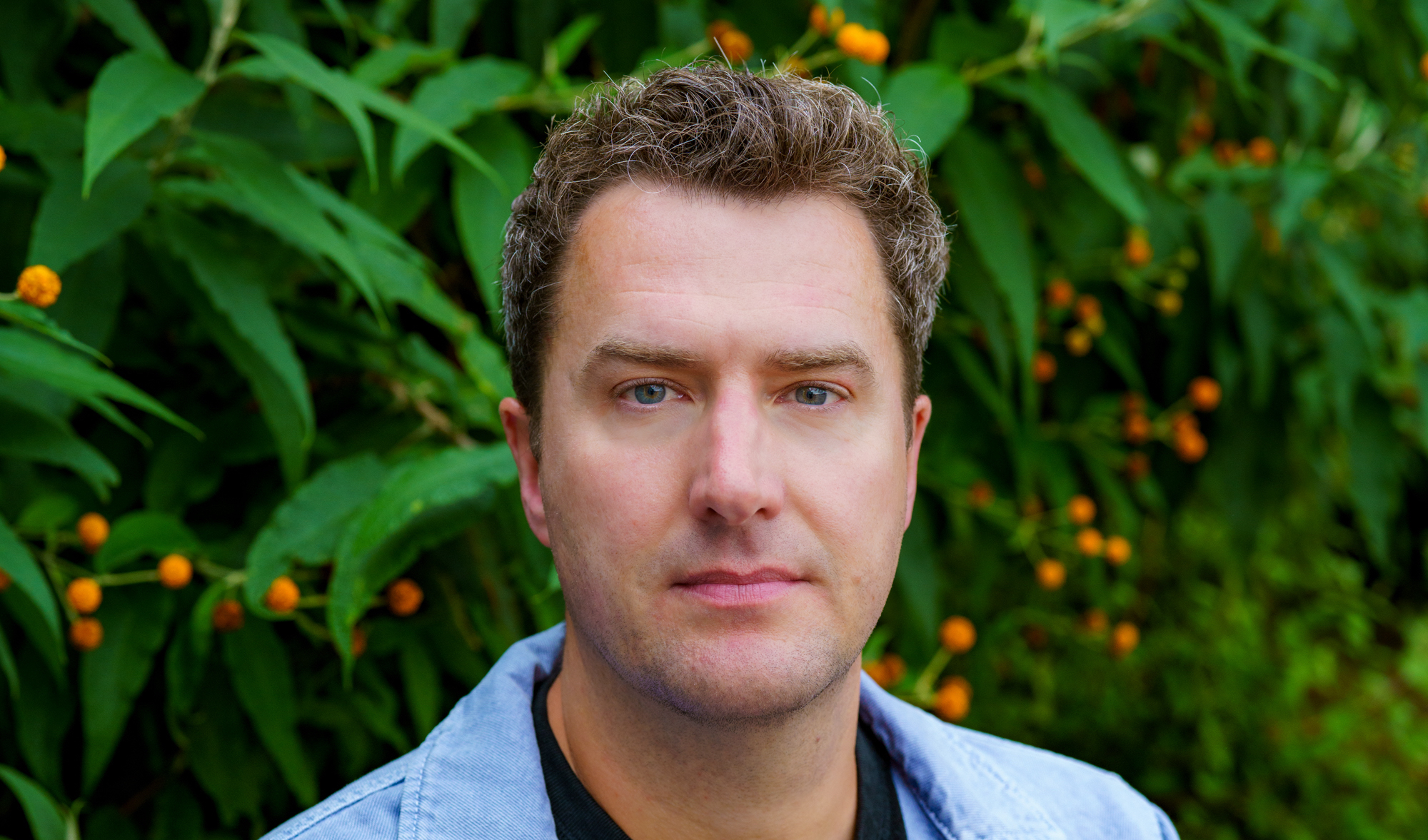A Violence of Gifts
(2014) 38’
for soprano, baritone, chorus & orchestra
Part 1: Intrada – There is a relic of ancient light – Imagine that moment
Part 2: Theia – Once, to look out was enough – It is not answers we seekDescription
A Violence of Gifts comprises six subsections cast in two main parts and sets a newly commissioned text by the poet Owen Sheers. The piece explores themes of origins: the origins of light and matter, and of life on Earth.
Part One opens with the Intrada. The primordial sonority of contrabass clarinet, contrabassoon, tuba and divisi double basses is introduced, over which the trombones and horns intone a sustained melody. This melody outlines the principal melodic and harmonic ingredients of the entire piece: namely the pitches C, G and A-flat. These pitches are drawn from the magical harmonic structure of the first section of Haydn’s aria ‘In native worth’ from
The Creation, which was a point of inspiration and departure for
A Violence of Gifts. The chorus enters, weaving together the verb ‘begin’ from many different languages in a complex tapestry scored for double choir. As the music of the Intrada subsides, the solo soprano enters, declaring 'There is a relic of ancient light'. She is alluding to an imprint in the sky of the oldest light in the universe, which depicts the seeds of all future structures – fledgling stars and galaxies. The chorus joins, chanting the names of deities from ancestral creation myths, and asks ‘what soul can thrive without thought’s creation?’ The music builds to a climax before leading into a tender duet, ‘Imagine that moment’, for the soprano and baritone. Here the text is cast in two stanzas, which unfold concurrently in a sort of double-helix structure. The soprano bids us to imagine being present at a time in the early universe when matter and antimatter existed together in a continual cycle of creation and destruction. Meanwhile, the baritone considers the emergence of the first single-cell life forms from the hellish conditions of the early Hadean Earth. Rooted in a strange B-flat minor tonality, the chorus re-enters celebrating the emancipation of light from matter and the tearing away of gravity from the other forces of nature, bringing Part One to an uncertain close.
Part Two begins with the chorus, briefly unaccompanied, proclaiming a forceful adulation of the ancient planet Theia, which collided with the early Earth. The debris from this tremendous impact gathered to form the Moon. The collision also caused the Earth’s tilt, which in turn resulted in seasons, tides and, eventually, atmospheric stability; vital components for the development of life on Earth. As the tumult subsides the solo baritone enters, asserting that ‘Once, to look out was enough’, but now we must look inwards at the world of strange particles and forces to understand the mechanisms of matter. These mechanisms are also the foundations for life; the chorus traces the origin of every organism ever to have lived on Earth back to a single common ancestor, Luca. The soprano joins, declaring ‘It is not answers we seek’ as she reasons that in order to discover more about our origin we need to cultivate curiosity and doubt. The baritone expands on this idea, asserting that the faithful, whether those faithful to a religious narrative or a scientific dogma, cannot search for new answers; in order to discover more we need to ask new questions. What was the first instant of creation really like? What is the nature of the mysterious dark matter and energy that makes up the majority of the cosmos? Will expansion of the universe continue indefinitely? Together, the soprano, baritone and chorus remind us that humanity is the universe made conscious; they implore pioneering minds to continue mining for new thought and knowledge.
MB
First performance
18/04/2015
St David’s Hall, Cardiff, UK
BBC National Orchestra of Wales / Martyn Brabbins / Elizabeth Atherton & Roderick Williams
Commissioned by
BBC Radio 3 as part of the composer’s residency at the BBC National Orchestra of Wales. The text was commissioned with funding from the Jerwood Charitable Foundation.
Instrumentation
Orchestra: 2+picc.2+ca.2+cbcl.2+cbsn / 4.3.2+btbn.1 / timp.4perc / hp.pf(=cel) / str
Soloists: solo soprano / solo baritone
Chorus: SSAATTBB
Score
Available to preview and purchase from
Composers Edition.
Blog
Mark has written a
series of blogs for BBC Radio 3 about composing
A Violence of Gifts.
part 1 |
part 2 |
part 3 |
part 4


